
From the outside, everything may seem fine. You keep going, meeting expectations, staying reliable. Yet inside there can be a quiet, persistent exhaustion that is harder to name. High-functioning distress often lives in this space, where life continues to move forward while emotional energy slowly runs low.
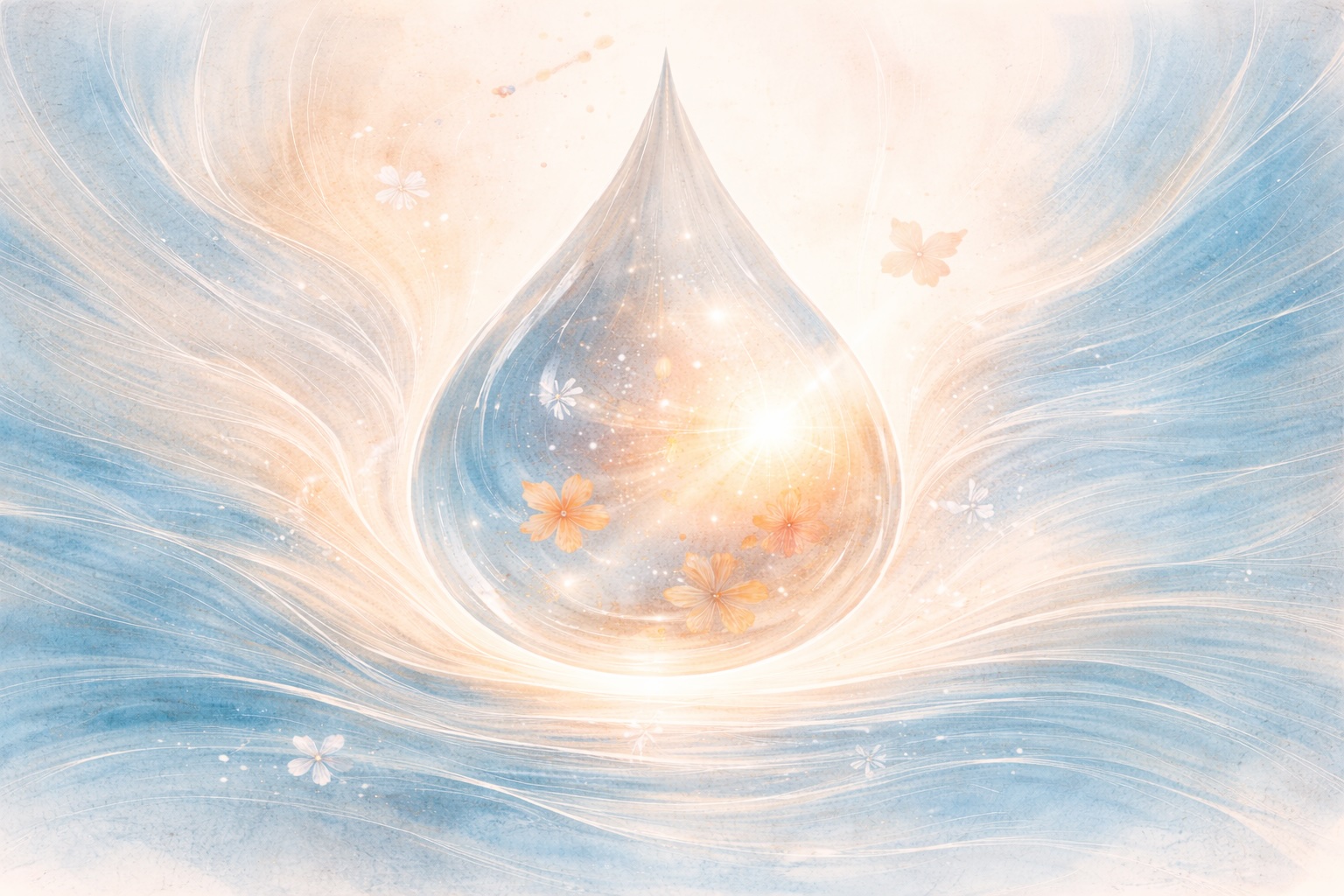
Many people describe their inner world in a similar way: “I know something is there, but I can’t quite feel it.”
They are not emotionally flat in an obvious sense. They function well, often at a high level. They think clearly, reflect deeply, and may even speak about emotions with precision. And yet, when it comes to actually experiencing feelings, sadness, anger, fear, or even joy, there is distance. A sense of fog. Sometimes, an unsettling absence.

On-and-off relationships—characterized by repeated cycles of breaking up and reconciling—can be emotionally draining and psychologically complex. Individuals may return to partners despite previous hurt, hoping for lasting stability
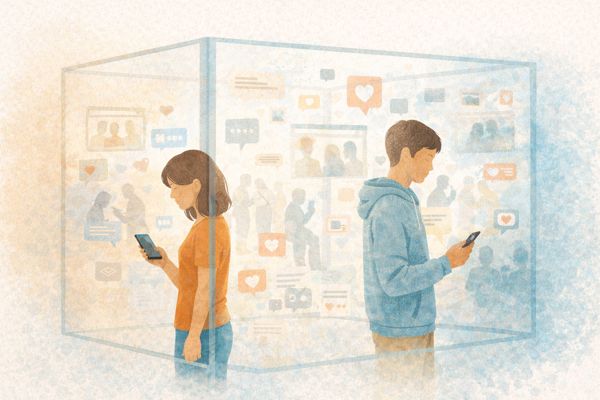
Being an adolescent today is not simply a phase of life. It is a continuous, immersive experience that leaves very little room for silence. The world never really switches off. Notifications arrive in the evening, at night, and first thing in the morning. Relationships do not stay at school or within a small group of friends. They continue on screens, in messages, in shared images and comments.
Many adults look at this landscape with concern, wondering whether something is “wrong.” Adolescents, instead, often talk about feeling tired, pressured, and constantly exposed. Between these two perspectives, there is a generation growing up in a new emotional and relational environment, where becoming oneself requires a different kind of effort than it did in the past.
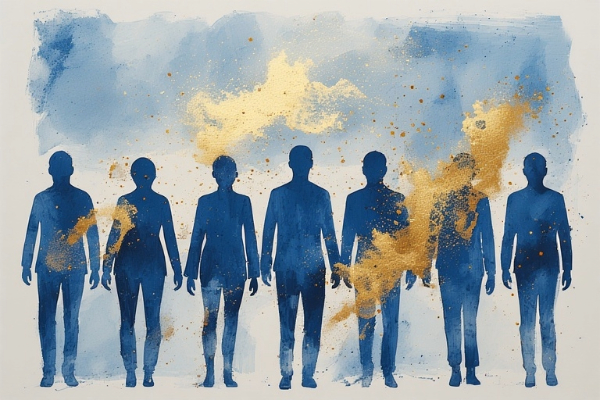
There is a moment, during adolescence, when the future stops feeling like a promise and starts to feel like a threat. It does not arrive suddenly. It creeps in slowly, often in the form of silent questions: “Who will I become?”, “Will I be good enough?”, “What if I get everything wrong?”

Sleep is far more than just rest, it’s a crucial process for your brain and emotional well-being. During sleep, your brain consolidates memories, processes emotions, and restores cognitive function. Poor sleep can make it harder to focus, regulate your mood, and handle stress.
People with ADHD, depression, or irregular work schedules often face particular sleep challenges. For example, ADHD can make it difficult to fall asleep due to racing thoughts, while depression may lead to oversleeping or fragmented rest. Shift work or irregular schedules can disrupt the body’s natural circadian rhythm, making deep, restorative sleep harder to achieve.
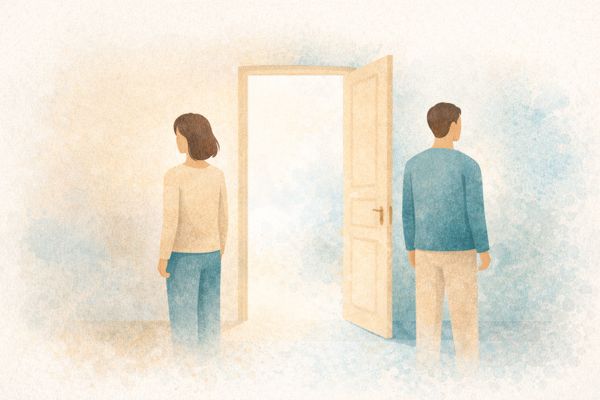
There are relationships that no longer feel right, and yet they don’t end. Not because people are unaware that something isn’t working, but because the idea of leaving feels even more frightening than staying. In these situations, the relationship becomes a place of paralysis. It is no longer a space of growth, but not something that feels possible to walk away from either.
Many people describe this experience by saying, “I know it’s not right, but I can’t take the step,” or “I stay because I don’t know what comes next.” This is not a lack of clarity or strength. It is often a deep emotional freeze, rooted in fear of change, loss, and uncertainty.

At some point, many people reach a confusing realization: the strategies that once helped them cope no longer work. Staying busy doesn’t quiet the anxiety anymore. Overachieving stops feeling stabilizing. Even “healthy” tools like journaling or self-reflection begin to feel ineffective or exhausting.
This experience is unsettling, but psychologically, it’s often a sign of change rather than failure.
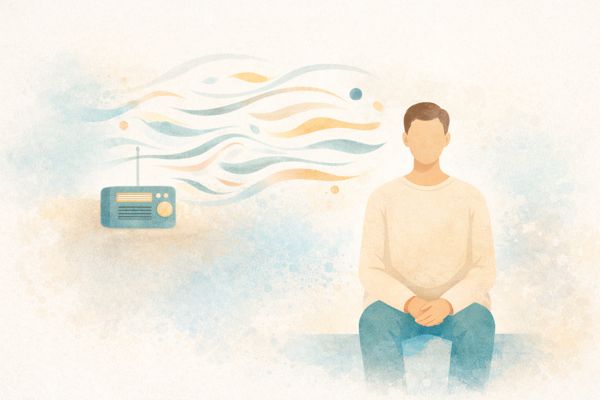
All of us live with an inner critical voice. It is not something that only affects people who struggle or who are in therapy. It is part of being human. What really makes the difference is not whether this voice exists, but how we relate to it.
Some people have learned, often over time, to recognise this voice as a mental commentary. It speaks, it judges, it warns, but it is not confused with reality. Others, instead, experience the inner critic as absolute truth. Not as a thought, but as a fact. Not as an opinion, but as a description of who they really are. This is often where emotional suffering begins.

Many people are drawn to the idea of love and connection, yet experience an underlying fear when it comes to forming actual relationships. This fear can make commitment feel overwhelming, closeness seem threatening, or even lead to self-sabotage when a potential partner gets too near.

There are times when, on paper, everything seems fine.
Work is going well enough. Daily responsibilities are being managed. Life looks functional from the outside. And yet, inside, you feel constantly tired, mentally stretched, unable to truly relax. Even during moments of rest, your mind feels busy, alert, occupied.

We tend to trust confident people. They speak clearly, rarely hesitate, and sound sure of themselves. It feels natural to assume that confidence comes from knowing what you’re doing. Psychology, however, suggests the opposite can be true.
The Dunning–Kruger Effect describes a common cognitive bias: people with lower ability in a given area often overestimate their skills, while more competent individuals are more likely to doubt themselves.

Have you ever stared at a menu for ten minutes, unable to choose between two seemingly identical options? Or felt paralyzed trying to pick what to wear, even though your closet is full? You’re not alone — making decisions, even small ones, can sometimes feel surprisingly difficult.
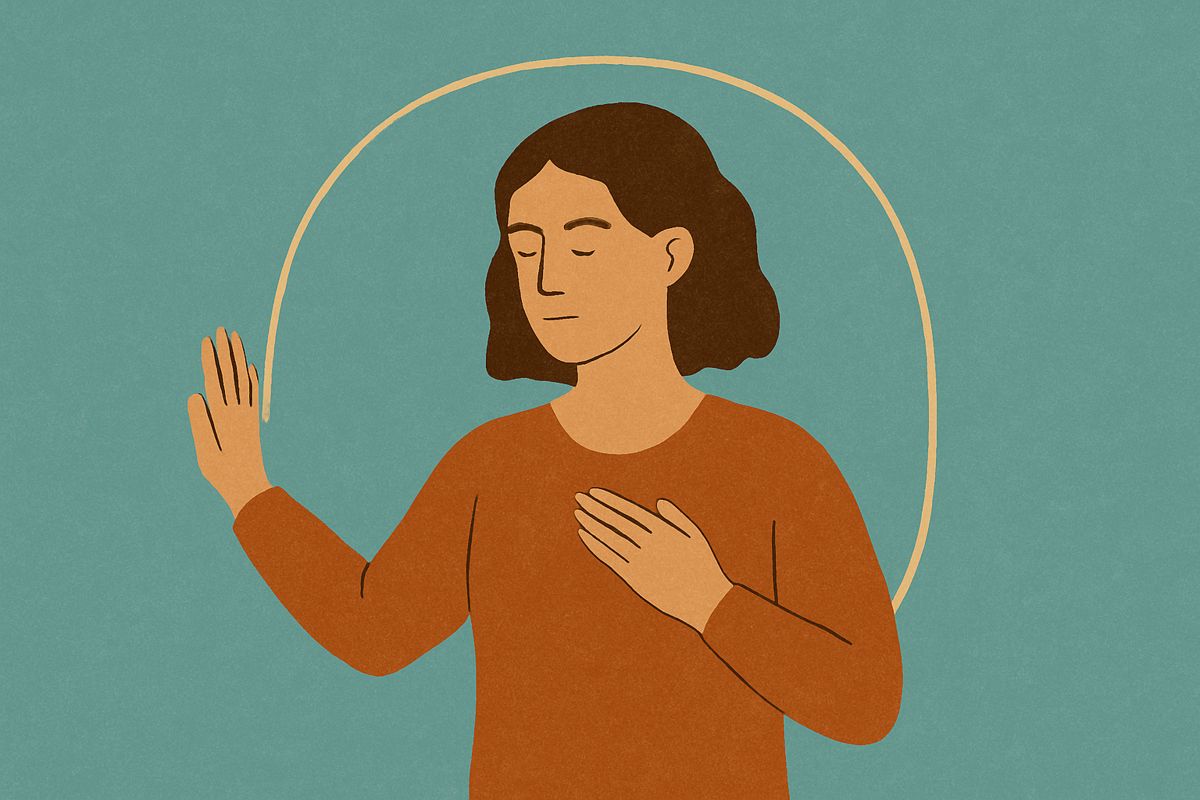
Emotional boundaries are one of the most important skills for psychological wellbeing, and at the same time one of the least taught. They are invisible, often misunderstood, and frequently confused with being cold, distant or selfish. In reality, emotional boundaries are what allow us to stay connected without losing ourselves. They shape how we relate to others, how we protect our energy, and how safe we feel inside our relationships.

It’s no secret that social media is a double-edged sword. On one hand, it connects us with friends, family, and communities across the globe. On the other, scrolling through endless posts can leave us feeling anxious, inadequate, or simply drained. But why does this happen, and is there a way out?
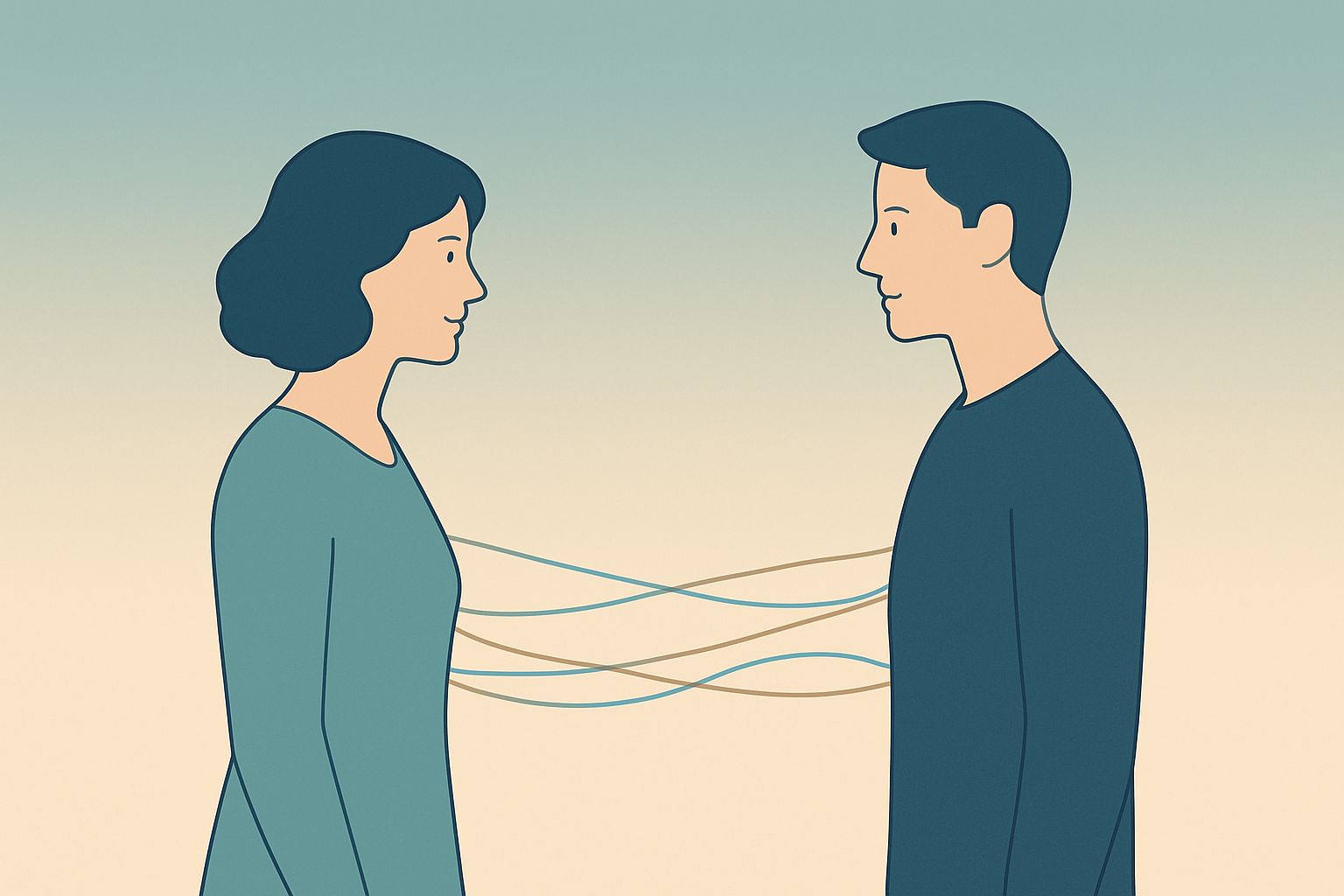
The way we connect with others doesn’t begin in adulthood. It takes shape much earlier, through the care, attunement and emotional availability we experienced as children. This article explores how attachment styles influence adult relationships and how psychotherapy can help cultivate more secure and satisfying bonds.

Within the broad diversity of the autistic spectrum, some individuals—both children and adults—experience a distinctive pattern of responses to everyday expectations. These might be routine instructions, social requests, internal goals, or even enjoyable activities.

Grief is something nearly everyone encounters at some point, yet the stories we’re told about what it should look like often make the process even more painful. Phrases like “be positive” or “they’re in a better place” usually come from kindness, but they don’t always match the lived reality of loss. For someone grieving, these messages can create pressure, shame or uncertainty about whether they’re “feeling the right things.”

Sleep feels effortless until stress hits and the mind refuses to switch off. Thoughts race, the body stays alert and frustration builds. In this article we explore why this happens, what the brain does under anxiety and which strategies can help you break the cycle of insomnia.
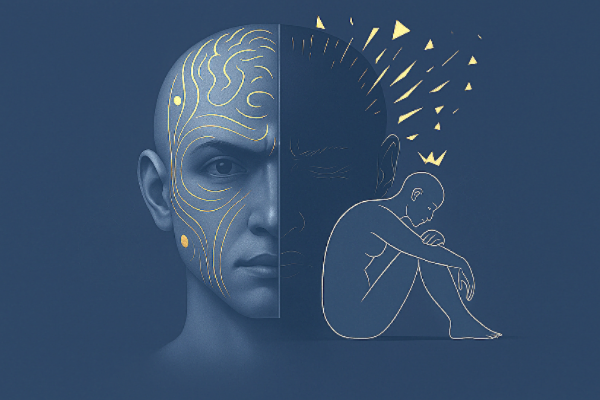
Tics are involuntary, sudden, rapid, recurrent, and stereotyped gestures, movements, or vocal expressions, which can be classified as simple or complex.
Tourette Syndrome (TS) is diagnosed when individuals exhibit both motor and vocal tics for over a year.

For someone living with agoraphobia, this isn’t an exaggeration or a momentary worry, it's an everyday struggle that gradually shapes how they move through the world. Tasks that most people take for granted, like getting groceries or meeting a friend for coffee, can become daunting challenges. Agoraphobia narrows a person’s life slowly, often quietly, until familiar places feel unsafe and the home feels like the only refuge. Understanding what’s happening beneath this fear is the first step toward loosening its grip.
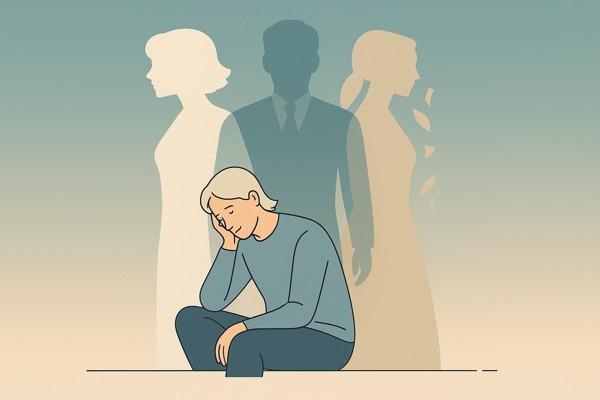
Our sense of identity shapes how we relate to ourselves and the world. Yet, for many, this connection can become blurred by shame, expectations, or fear of not being accepted. This article explores what it means to reconnect with your authentic self — and how therapy can support that journey toward self-acceptance.

Burnout is described as a state of physical, emotional, and mental exhaustion caused by prolonged and intense stress, often related to work or high-pressure situations. The English term “to burn out” refers to the concept of “burning.”
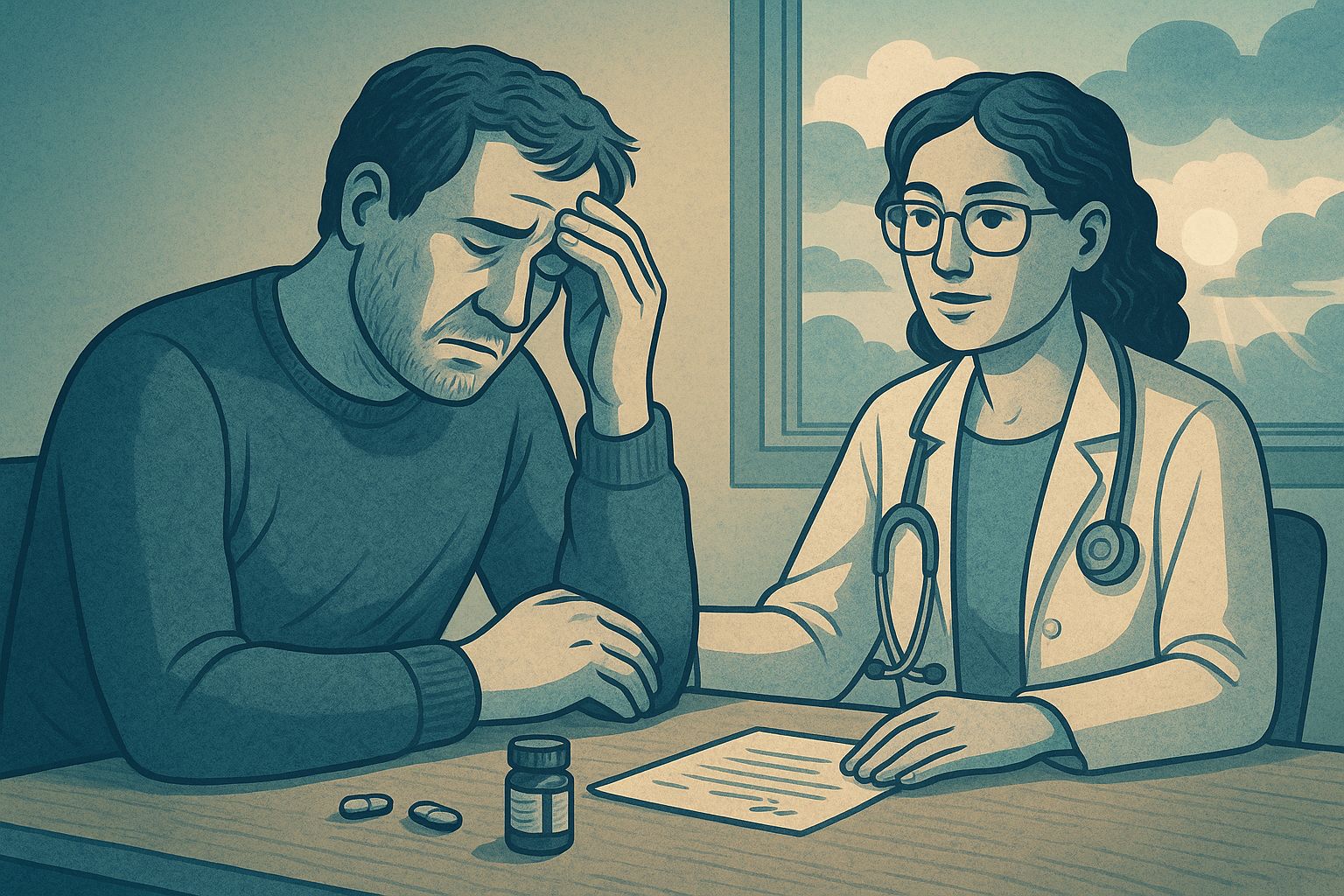
When a chronic diagnosis enters your life, everything seems to lose shape. This article explores what happens inside, in your mind, your relationships, and your sense of self — when illness changes your rhythm of life, and how psychotherapy can help you find balance and meaning again.
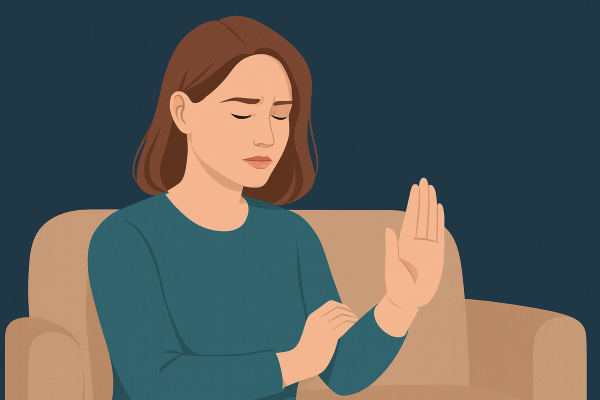
Ever found yourself saying “yes” when every fiber of your body wanted to say “no”? You’re not alone. From work favours to social invitations, many of us struggle to set boundaries. But why is it so difficult to say no, and what’s really happening in our brains when we hesitate? Understanding the psychology behind our automatic yeses can help us reclaim our time, reduce stress, and maintain healthier relationships.

Trauma can quietly reshape how we see ourselves and the world. It changes how we think, feel, and connect with others. Whether caused by a single event or ongoing stress, understanding trauma helps us make sense of our pain and begin the process of healing.

Until a certain age, lying is a natural part of a child’s development, helping them explore the boundaries between fantasy and reality, protect themselves from the consequences of their actions, and better understand how others think.
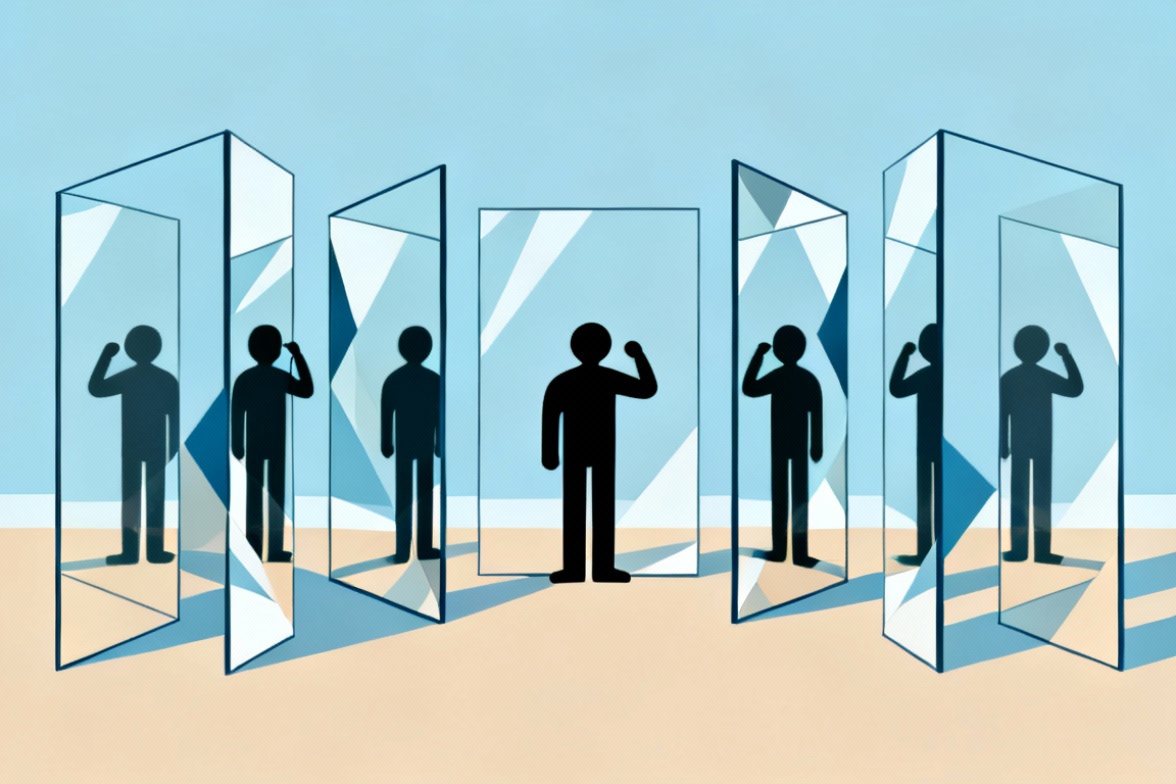
We all have moments when we don’t feel great about how we look. For someone living with Body Dysmorphic Disorder (BDD), that thought doesn’t just pass. It deepens, repeats, and can quietly take over everyday life. BDD is more than insecurity or vanity, it’s a mental health condition where a person becomes obsessed with perceived flaws in their appearance, flaws that are often invisible to others.
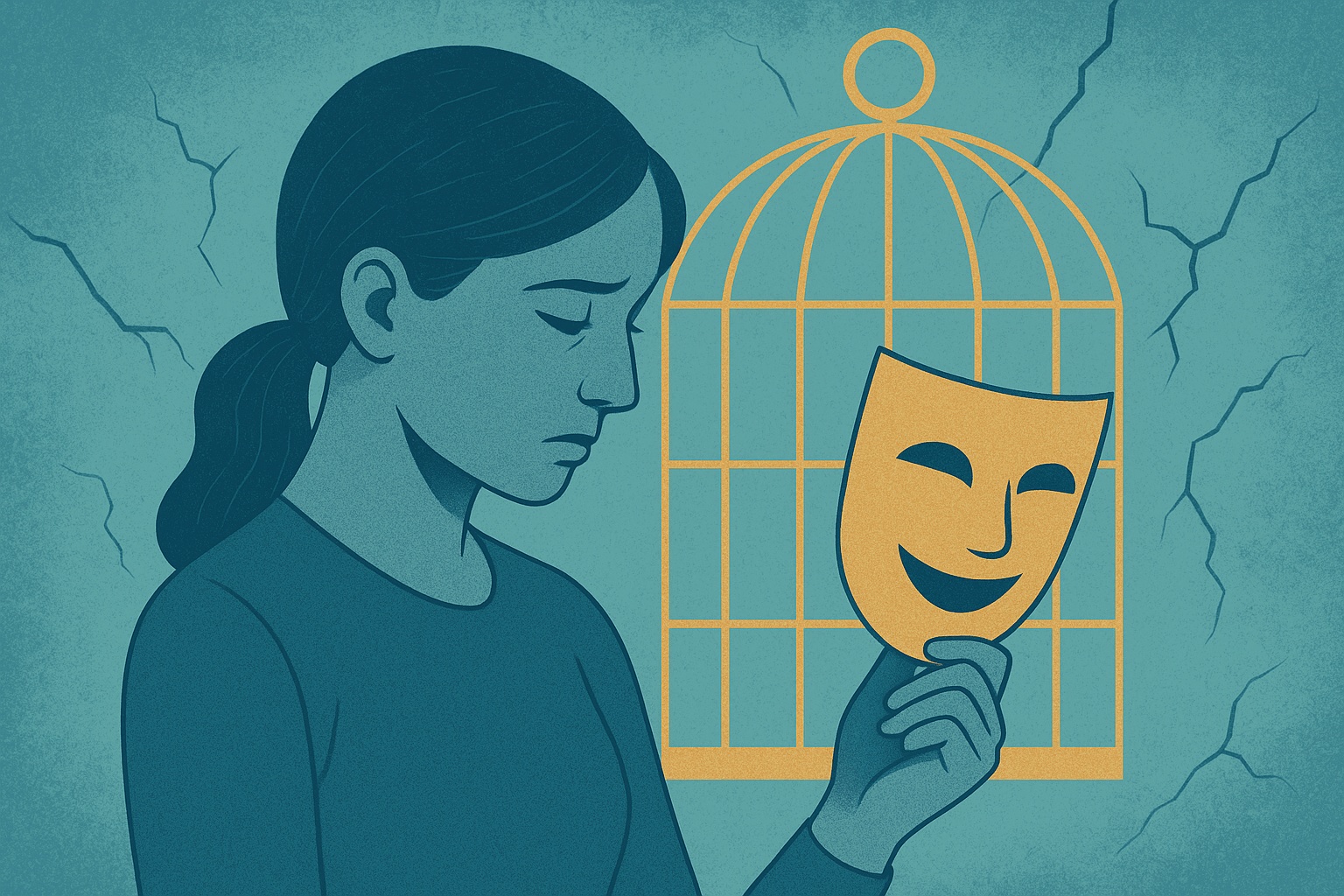
Perfectionism often looks like a strength, precision, ambition, high standards. Yet behind the polished surface sits a constant tension: the “never enough” loop that fuels anxiety, shame and burnout. This article explores why perfectionism can become emotionally exhausting, and offers practical, compassionate ways to loosen its grip and rediscover your sense of balance.
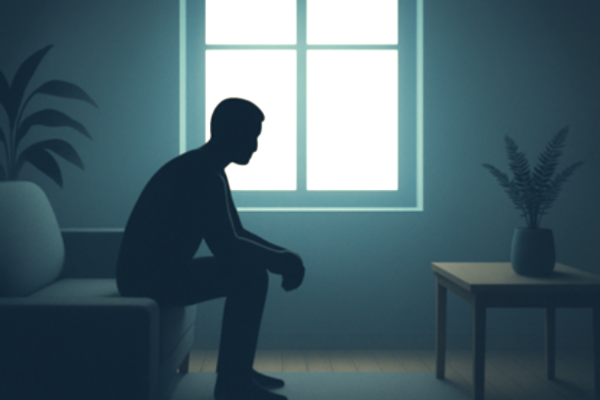
Loneliness can be defined as the emotional state or feeling of being isolated or disconnected from others, even when surrounded by people.
The experience of loneliness is subjective, and it is not necessarily about being physically alone, but rather about feeling a lack of meaningful connections, companionship, or emotional support.
Loneliness can arise from a variety of factors, including deficits in relationships, feelings of inadequacy, and a sense of being different from others. It can also be triggered by a shame-based self-image, low self-esteem, and issues related to physical development.
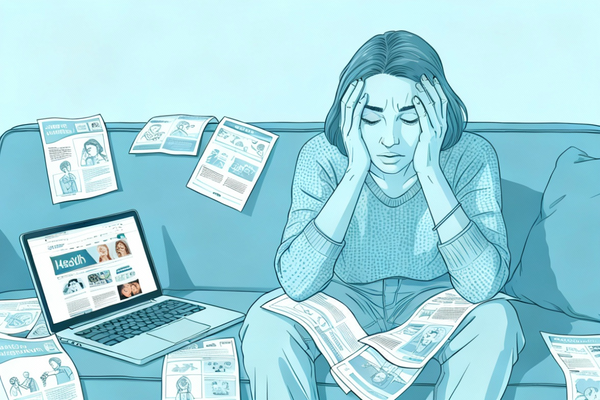
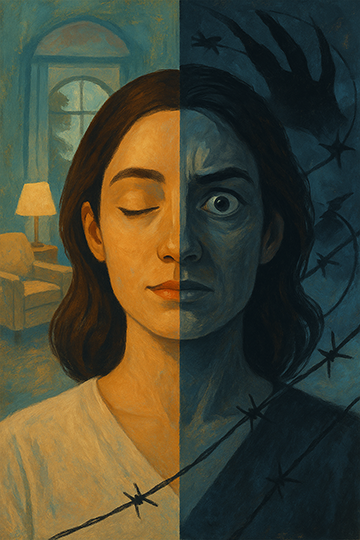
In today's fast-paced and unpredictable world, many people unknowingly find themselves trapped in what psychologists refer to as survival mode. Originally designed to respond to immediate threats, this state becomes a long-term condition of chronic stress and fear when activated repeatedly by modern life challenges. Living in survival mode can deeply affect both mental and physical health, often leaving people stuck, exhausted, and disconnected from themselves.
Fortunately, psychotherapy offers effective tools to break free from this constant emergency state and reclaim a life of balance and meaning.
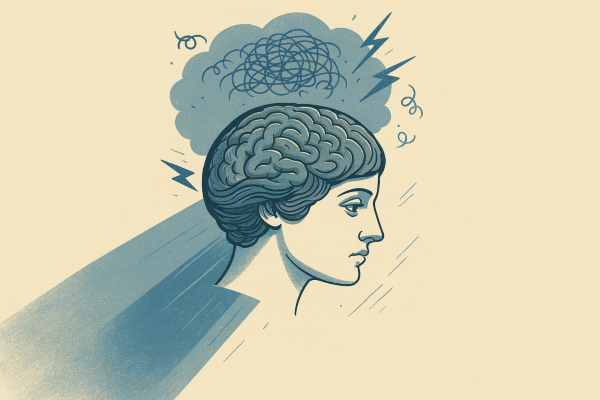
Generalized Anxiety Disorder (GAD) is characterized by persistent and excessive worry about various aspects of daily life, such as work, health, finances, or relationships, even when there is little or no reason to worry. Unlike normal anxiety, which is usually linked to a specific event or challenge, GAD involves chronic, uncontrollable worry that interferes with daily functioning. If you often feel anxious, even without a clear cause, and find it difficult to stop worrying, you might be dealing with GAD.
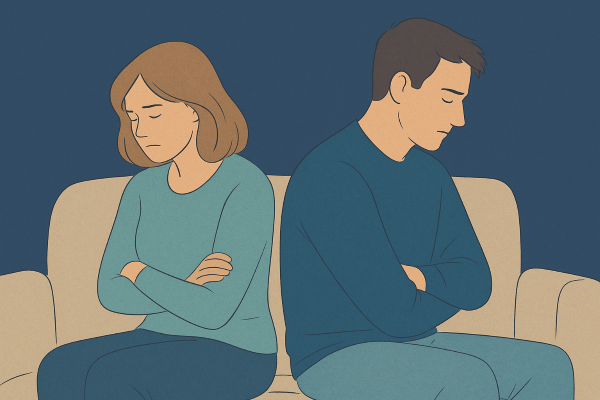
Modern relationships are more complicated than ever. Between busy schedules, digital distractions, social media comparisons, and shifting cultural expectations, couples face pressures that previous generations rarely encountered. Love, once thought of as simple connection and companionship, now has to withstand constant stressors that test even the strongest bonds.
One of the biggest challenges couples face today is balancing work and personal life. When one partner is working late regularly or bringing stress home from the office, the other may feel neglected.
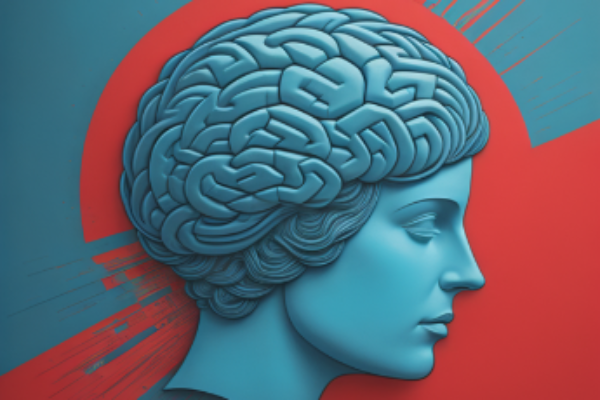
All of us experience low mood occasionally; we may feel sad, unmotivated, tearful following bad news or because of the fall out of a relationship. However, we can feel better after a while, when we find a solution, or we accept alternative ways to cope with difficult events. Depression (also known as major depression, major depressive disorder, or clinical depression), instead, differs from typical mood fluctuations and everyday emotions.
You can schedule a no-cost 10-minute consultation to discuss your goals and discover how our support can make a meaningful difference. Please, fill out the contact form with your preferred call time and contact number, and a member of our team will reach out within 48 hours